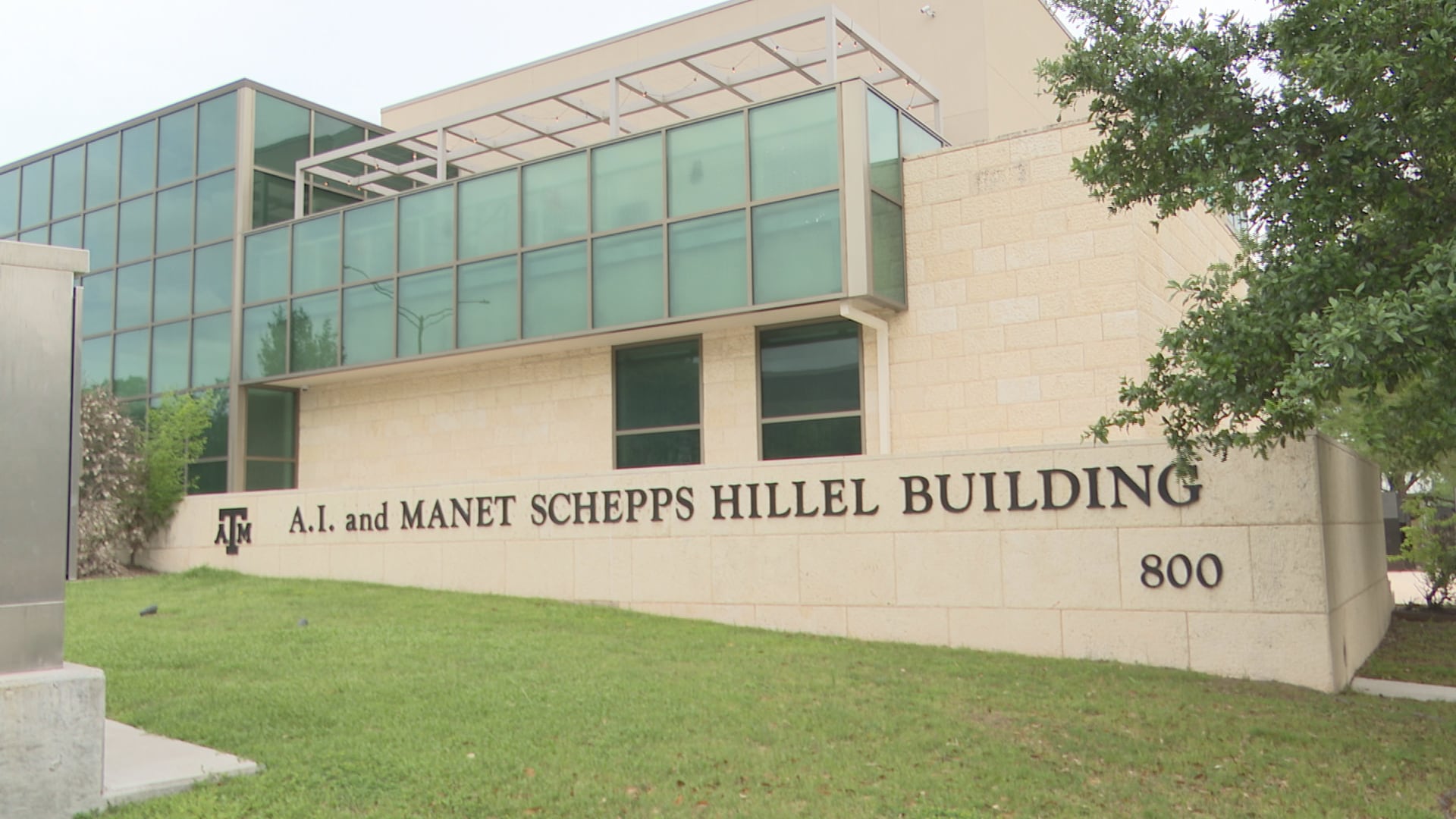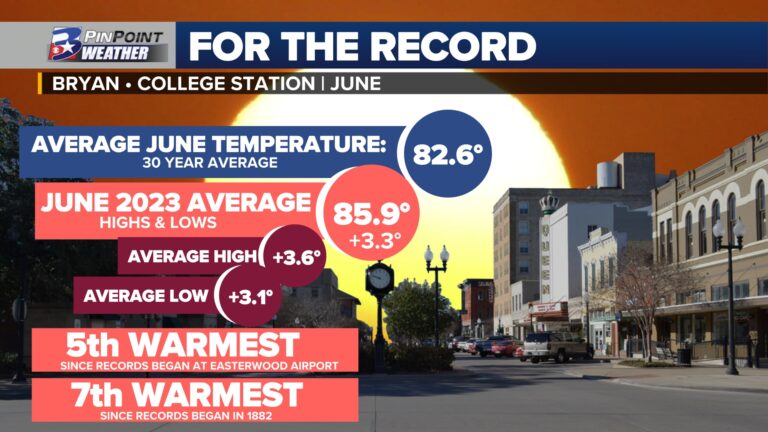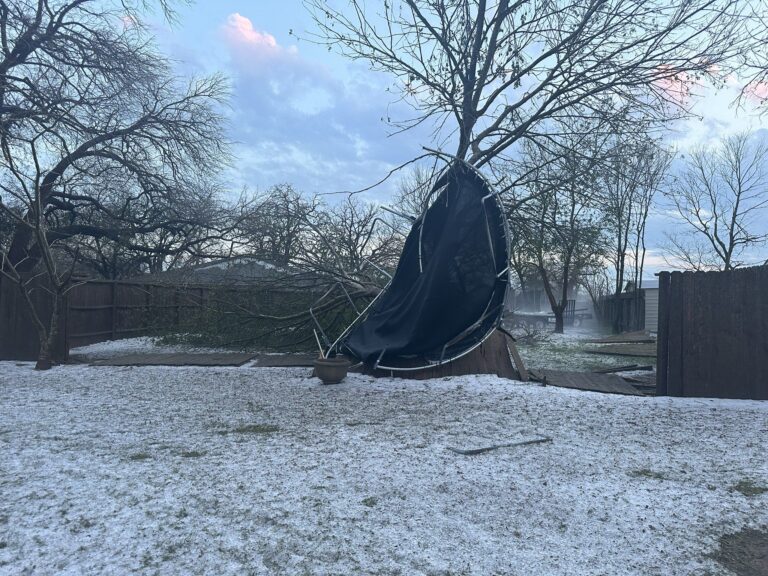Texas A&M University organizations react to Gov. Abbott’s executive order to revise university free speech policies
COLLEGE STATION, Texas (KBTX) – Gov. Greg Abbott is looking to curb antisemitism at higher education institutions in the state with an executive order he issued last Wednesday.
The executive order would require universities to change their free speech policies to define antisemitism and then enforce punishment, one of which could be expulsion when the policy is violated. Abbott issued the order in response to what he called “the sharp rise in antisemitic speech and acts on university campuses.”
In a press release from the governor’s office, Abbott said antisemitism is never acceptable in the state of Texas and they will do everything they can to fight it.
“The State of Texas stands with Israel and the Jewish community, and we must escalate our efforts to protect against antisemitism at Texas colleges and universities and across our state. Across the country, acts of antisemitism have grown in number, size, and danger to the Jewish community since Hamas’ deadly attack on October 7th,” Abbott said in the press release. “Texas took immediate action to protect Jewish schools, synagogues, and other key locations. Many Texas colleges and universities also acted quickly to condemn antisemitism, but some radical organizations on our campuses engaged in acts that have no place in Texas. Now, we must work to ensure that our college campuses are safe spaces for members of the Jewish community.”
Since the Hamas-Isreal war started on Oct. 7, Hillel, an organization that supports Jewish students on college campuses, said there have been over 1,200 reported incidents of anti-semitic incidents at colleges nationwide as of April 1. According to Hillel, that’s a 700% increase compared to last year.
Hillel’s chapter at Texas A&M said luckily those incidents aren’t seen very often in Aggieland unlike other colleges in the northeast or here in Texas.
“UT had some graffiti sprayed on it. We have not had that,” Risa Bierman, Texas A&M Hillel executive director said. “You can go anywhere in the northeast and there is a huge number of antisemitic incidents that are occurring where we have Jewish students who feel unsafe going to class. We do not have that here. I think we’re going to see an increase in Jewish students coming to Texas A&M because of that.”
While Bierman said the order is a good attempt to support Jewish students, there’s a fine line between what is free speech and what is considered hate speech. It’s a line she thinks will be difficult to define.
“Nobody likes hate speech and anytime you are saying you are saying you want to hurt somebody else or be violent against another person or religion is hate speech to me. I think this executive order his heart is in the right place and we will always support our Jewish students,” Bierman said.
Texas A&M University released a statement to KBTX about how they plan to approach the order. It read as follows: “The office of General Counsel is reviewing Gov. Abbott’s executive order, along with relevant system policies and will follow up with appropriate officials with recommendations on next steps.”
Universities will have 90 days from when the order was issued to report their changes to the governor’s office along with providing evidence that they are being enforced.
“We will support the university in supporting his executive order as well as working with them to kind of see if they’re going to use the definition that he has or if they’re going to come up with their own definition, or if they have any questions or information that they need from us to make a better decision,” Bierman said.
When Gov. Abbott issued the order, he singled out Palestinian student groups such as the Palestine Solidarity Committee and Students for Justice in Palestine saying they violated free speech policies and should be disciplined.
KBTX spoke with Texas A&M’s Palestine Solidarity Committee who are concerned about how this will affect free speech not only for them but their advocates.
“We see it as a misrepresentation to justify a violation of our first amendment, and there’s no moral basis for this censorship,” said Karam Emran, Texas A&M Palestinian Solidarity Committee President. “We believe it’s our right to demand accountability for institution complexity in any genocide that’s happening rather in Palestine or not Palestine.”
Emran said the order is putting the group in a category of being anti-Semitic or expelling hate speech when they’re not. Abbott’s order lists phrases such as “from the river to the sea, Palestine will be free,” as anti-Semitic. It states the phrase is used by Hamas supporters.
“In the past couple of months, over 32,000 innocent Palestinians were killed in Gaza mostly women and children, hospitals are destroyed, schools have been bombed and water desalination facilities have been destroyed and we’ve been trying to advocate for that we get blamed for an increase of antisemitism which is not true and we stand against anything of that kind,” Emran said.
The group said it would like Abbott to revoke his order and find a way to make Palestinian and pro-Palestine students also feel safe on campus.
“We call on our university administration to protect our and your student body’s constitutional rights,” Emran said. “We want to see action from Governor Abbott if he actually wants to be fair and not select any side.”
Hundreds of students have taken part in pro-Israel and pro-Palestine protests on Texas A&M’s campus since the war began. Texas A&M said that all of these have been peaceful without any incidents.
Texas A&M’s Palestinian Solidarity Committee said it is working with its other chapters throughout the state to take potential legal action to block Abbott’s order.







